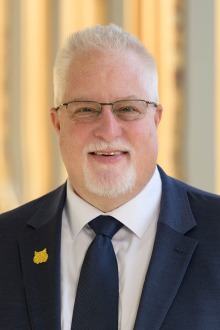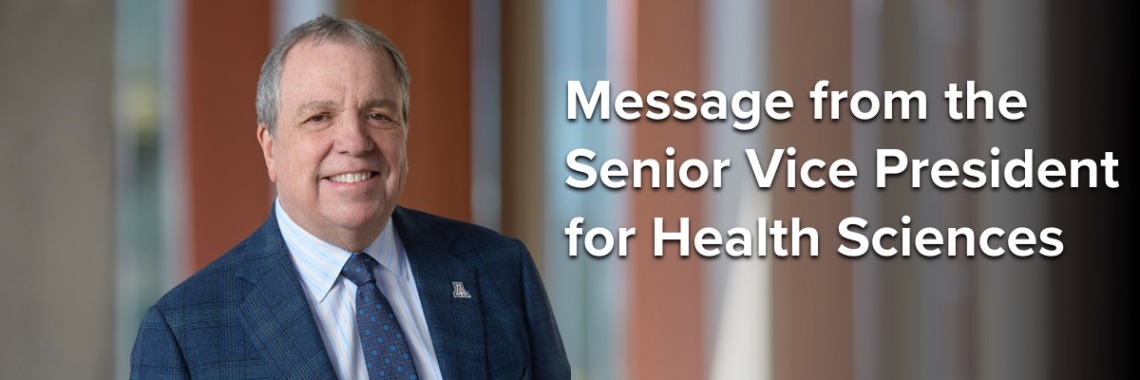Board of Regents approves new College of Health Sciences
When the needs of Arizonans change, the University of Arizona Health Sciences grows and changes as well, to better serve and teach everyone. The Arizona Board of Regents recently approved our new College of Health Sciences, which supports our mission to improve health and human potential by educating the next generation of health care professionals. With this new college, we are creating additional professional programs to meet the needs of every Arizonan.

Interim Dean Kevin Lohenry, PhD, PA-C
The new College’s five initial programs – Midwifery, Physician Assistant, Doctor of Physical Therapy, Genetic Counseling and Clinical Translational Sciences – will include graduate-level courses and clinical experiential training to produce highly competent health care providers and translational research scientists.
Led by Interim Dean Kevin C. Lohenry, PhD, PA-C, assistant vice president of interprofessional education at UArizona Health Sciences, the College of Health Sciences will provide a mix of health graduate professional programs with interprofessional and interdisciplinary science training. It will partner with our existing colleges to provide a path for students to pursue health-related graduate degrees here at the University of Arizona Health Sciences.
In Arizona, only 40% of primary care needs and 25% of genetic counseling needs are currently being met. Seven counties have no or limited access to maternal care, and physical therapy options in rural areas are limited. There is also a growing demand for trained clinical translational scientists to work in academia or industry and to advance understanding of the scientific bases for effective clinical management of a wide range of diseases.
The College of Health Sciences will play a vital role in alleviating these health disparities by creating a pipeline of new health care professionals trained to respond to current and future challenges and opportunities in key areas. In addition, the new college will train students to serve the needs of Arizona’s diverse and rural communities.
The future of health care in our state and nation is an important area of growth for the university, and UArizona Health Sciences is at the forefront of the response.
We will continue to keep you updated as the programs evolve.
Michael D. Dake, MD
Senior Vice President for University of Arizona Health Sciences


